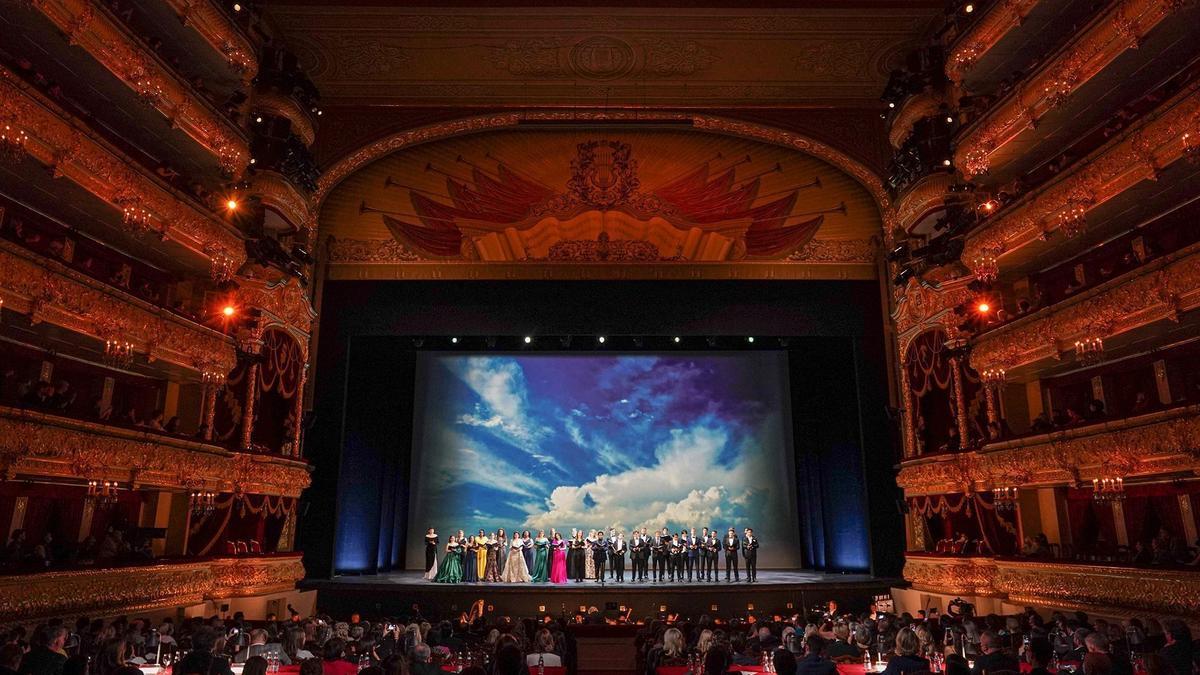
Come September, and the city of Mumbai will be graced with the voices of some exceptionally talented tenors and sopranos from around the world. In a week-long celebration of operatic prowess, the final round of the globally-renowned Operalia competition will take place at the distinguished National Centre for Performing Arts (NCPA). Established in 1993 by the legendary tenor Plácido Domingo, Operalia has carved out a pivotal role in the world of opera, with its winners often receiving highly coveted opportunities.
“This marks the first instance of Operalia being held not just in India, but in the entire South Asian region,” emphasized NCPA Chairman, Khushroo N. Suntook. Adding to the excitement, Plácido Domingo, who will also preside over the jury, stated, “My initial performance in India was at a concert led by my dear friend Zubin Mehta in 2009, celebrating his father Mehli Mehta’s centennial. I eagerly anticipate reconnecting with the Indian audience.”
To be held from September 15 to 21, the competition invites participation from singers aged 20 to 32, covering all voice types. Out of hundreds of applicants, the auditions of the top 30 or 40 singers are meticulously shortlisted. According to Alvaro Domingo, Operalia Vice-President and son of Plácido, “Pre-judges assess qualities like technique and musicality. In the final round, judges examine various intricacies to determine the best singer. There are no separate categories for men and women, as the goal is to identify the most promising voice. It’s a process that has proven effective.”
In India, where opera has traditionally had a limited but passionate following concentrated in metropolitan areas, the news of hosting Operalia has been received with enthusiasm. British soprano Patricia Rozario, who hails from Mumbai, remarked, “It is a prestigious competition, and the NCPA has always been a hub for music. Our audiences and musicians will have a chance to witness the high standards of performance prevalent globally.”
The opera circuit in India often includes full-fledged operas or events featuring operatic singing. Staged performances in the country tend to lean towards comic operas over serious ones, as they are generally easier to comprehend. Even with a limited overall audience, these shows have seen packed houses. Opera enthusiast Cawas Engineer noted, “Many people attend these shows as social events; however, some develop a genuine interest in the genre.”
According to Asad Lalljee, curator of the Royal Opera House, Mumbai, “Even though people are exposed to global cultures more than ever, opera remains a foreign concept for many, involving a foreign language. Therefore, we select productions that are accessible to the general audience.”
Patricia Rozario underscored the importance of selecting the right opera, citing the success of the Italian comic opera “The Secret Marriage” by Domenico Cimarosa at the Royal Opera House in Mumbai.
. “The story was perfect for India because it was a comedy about different types of marriages. All four shows were sell-outs. Even though the performance was in Italian, the audience appreciated both the humor and the music,” she said.
Similarly, Khushroo Suntook from the NCPA believes that Indian audiences have a fundamental understanding of operatic elements due to their love for song and dance in movies, much like opera. Interestingly, the Nita Mukesh Ambani Cultural Centre (NMACC) Grand Theatre in Mumbai, another major venue, has focused more on musical theatre and has not hosted an opera in its one year of operation.
The NCPA, on the other hand, has had regular operatic shows. In 2022, it hosted Austrian maestro Johann Strauss II’s “Die Fledermaus” and Hungarian composer Ferenc Erkel’s “The Viceroy Bank.” Regular screenings of famous operas and gala events featuring international opera singers are a common feature. In February, American mezzo-soprano Sasha Cooke performed Hector Berlioz’s repertoire, conducted by Martyn Brabbins, expressing her joy at the warm and appreciative Indian audience.
The Royal Opera House has also been a venue for opera since its restoration in 2016, featuring performances by Patricia Rozario and her husband, tenor Mark Troop. The venue has hosted workshops and tributes, notably a tribute to the late Mumbai opera singer Celia Lobo.
High costs remain a challenge, with Royal Opera House often seeking support from consulates or linguistic bodies. Training upcoming opera singers is another focal area, with institutions like the Neemrana Foundation, Delhi School of Music, and Delhi Chamber Choir playing substantial roles.
Patricia Rozario and Mark Troop’s “Giving Voice to India” project began in 2009, involving intensive training programs. Patricia emphasized that although choral singing standards have improved, opera demands greater soloistic development. Many young Indian musicians now study abroad, and there is hope they will return to perform in local productions.
As Sasha Cooke points out, operatic singers must continuously care for their bodies and voices, with factors like motherhood and menopause affecting female singers’ voices, and constant travel influencing overall well-being.
With Operalia set to take place in Mumbai, there is hope for creating new audiences for the genre. Alvaro Domingo noted, “While we have more participants from the U.S., South Korea, and Japan, we hope this edition will inspire young Indian singers to pursue opera.” Perhaps, we might see an Indian winner soon.










